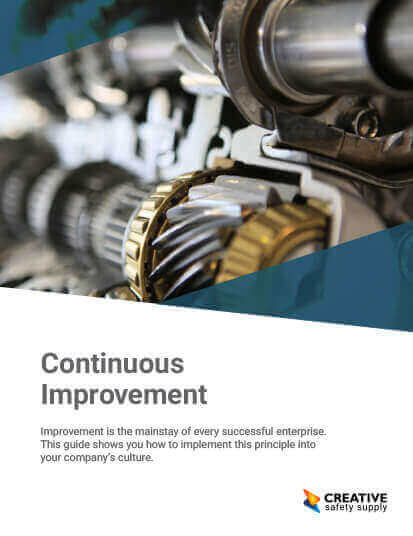
In the world of modern business, staying competitive requires more than just maintaining the status quo. Continuous improvement has emerged as a fundamental strategy for organizations to enhance processes, drive efficiency, and innovate. For example, Continuous Improvement can be used in a variety of industries such as It, Retail, Healthcare, and even Education. At the heart of this strategy is the role of a Continuous Improvement Engineer, a professional who plays a pivotal role in facilitating transformative change within an organization.
Defining the Role
A Continuous Improvement Engineer is an individual tasked with identifying opportunities for improvement, implementing changes, and ensuring that processes are optimized for maximum efficiency and effectiveness. This role is multifaceted and requires a blend of analytical, problem-solving, and interpersonal skills.
Key Responsibilities
- Process Analysis: Continuous Improvement Engineers meticulously examine existing processes to identify bottlenecks, inefficiencies, and areas for enhancement. They conduct thorough analyses, utilizing data and performance metrics to gain insights into where improvements are needed.
- Problem Solving: A core aspect of the role involves tackling complex challenges. Continuous Improvement Engineers use various problem-solving methodologies, such as Six Sigma or Lean, to diagnose root causes of issues and develop effective solutions.
- Change Management: Implementing process changes involves not just technical considerations, but also managing the human side of change. Engineers must communicate changes, address concerns, and ensure smooth transitions.
- Data-Driven Decisions: Data serves as the foundation for informed decisions. Continuous Improvement Engineers gather and analyze data to understand trends, assess the impact of changes, and drive data-based decision-making.
- Innovation: These engineers are often the driving force behind innovation within an organization. They explore emerging technologies and practices to find innovative solutions that can revolutionize existing processes.
- Cross-Functional Collaboration: Success in this role requires collaboration across departments. Engineers work closely with different teams to gather insights, understand pain points, and develop holistic solutions.
Required Skills and Qualifications
- Analytical Skills: A keen eye for detail and the ability to dissect complex processes to identify areas of improvement are crucial.
- Problem-Solving Aptitude: Continuous Improvement Engineers must excel at solving intricate problems using structured methodologies.
- Technical Proficiency: Familiarity with data analysis tools, process mapping software, and other relevant technologies is essential.
- Communication Skills: Clear communication is vital for conveying ideas, changes, and updates to various stakeholders.
- Change Management: Guiding teams through change and ensuring buy-in is a significant aspect of the role.
- Innovative Thinking: A mindset of continuous innovation drives the pursuit of new and improved solutions.
- Project Management: Coordinating projects, setting milestones, and ensuring timely execution is part of the role.
A Continuous Improvement Engineer is a catalyst for progress within organizations. Their ability to assess, strategize, and drive positive changes can lead to enhanced efficiency, cost savings, and increased competitiveness. By embracing the principles of continuous improvement and implementing the methodologies, these engineers help organizations navigate a rapidly evolving business landscape and position themselves for sustained success.
Similar Questions
- What is a Continuous Improvement Manager?
- What is the Continuous Improvement Process?
- What does Continuous Improvement and Innovation mean?
- What are Continuous Improvement methodologies?
- What is Continuous Improvement?
- How do Continuous Improvement and Lean Increase Efficiency?
- How is Continuous Improvement related to Kaizen?
- What is the DMAIC Cycle? A Comprehensive Guide
- How has Continuous Improvement helped businesses?

